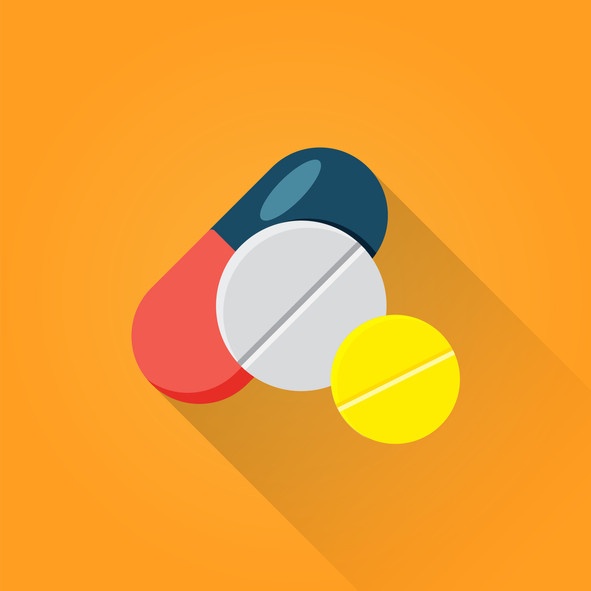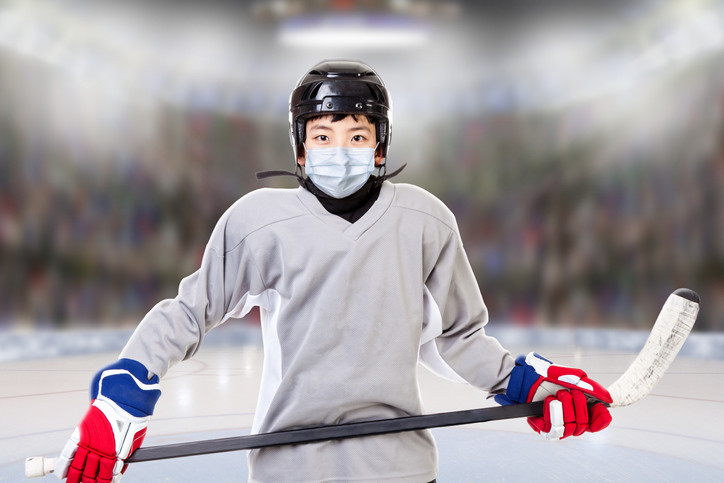
Counting steps is good — is combining steps and heart rate better?

Appendix pain: Could it be appendicitis?

Can saw palmetto treat an enlarged prostate?

How does Ozempic work? Understanding GLP-1s for diabetes, weight loss, and beyond

Zinc: What it does for the body, and the best food sources

Respiratory health harms often follow flooding: Taking these steps can help

Tips to leverage neuroplasticity to maintain cognitive fitness as you age

Can white noise really help you sleep better?

Celiac disease: Exploring four myths

What is prostatitis and how is it treated?
Harvard Health Blog
Read posts from experts at Harvard Health Publishing covering a variety of health topics and perspectives on medical news.
Articles
Which test is best for COVID-19?
Be vigilant about bug spray
It’s likely people are trying to spend more time outside this summer, whether to avoid indoor situations where COVID-19 may spread or just for enjoyment. But the threat from illnesses spread by ticks and mosquitoes hasn’t changed, so knowing basic information about insect repellent, and using it the right way, will help people protect themselves.
Children, teens, and the safety of psychotropic medicines
While many children and teens are prescribed psychotropic medicines to treat conditions like depression or attention deficit hyperactivity disorder (ADHD), a comprehensive look at safety data has been lacking. A recent review of multiple studies synthesizes evidence on the side effect profiles of many widely used medicines.
Rising temperatures: How to avoid heat-related illnesses and deaths
Hotter summer temperatures and prolonged periods of intense heat can lead to heat-related illness — and even deaths –– particularly in areas known as urban heat islands. People who are elderly and those with existing health problems are especially vulnerable. Know what to do to protect yourself and others.
School, camp, daycare, and sports physicals: What to do in the time of COVID-19
Summer activities are underway and some schools will be reopening come September. Does your child need a physical exam, or a form from the pediatrician? Here’s how to think through the options for fulfilling these requirements.
Wondering about goosebumps? Of course you are
Lifestyle changes are important for managing atrial fibrillation
Many lifestyle factors can influence the development of atrial fibrillation, and doctors now better understand the importance of these factors in treating afib. Those who are at risk of developing afib can take action to improve their health, and in some cases they may be able to reduce their symptoms.
Can appealing to teenagers’ vanity improve sun-protective behaviors?
Most people understand the risks of sun exposure, even if they do not regularly wear sunscreen, but getting younger people to pay attention to this concern can be difficult. A study chose a novel approach to this problem by appealing to teenagers’ vanity and focus on their appearance.
I can’t tolerate CPAP, what can I do?
Many people with sleep apnea find that a CPAP machine helps them, but others struggle and have difficulty using a CPAP machine. There are many reasons this could be happening, and it’s important for people to work with their doctor to troubleshoot and try adjustments that can make using the machine easier and more effective.
Avoiding COVID-19 when following the guidelines seems impossible
The lowdown on the low-FODMAP diet
Youth sports during COVID-19: What parents need to know and do
Playing youth sports is a great way for children to be active and learn important socialization skills, but the risks of COVID-19 mean parents with children who participate in sports must consider a number of factors when deciding whether to play.
Does air pollution cause Alzheimer’s disease?
It has been known for some time that air pollution causes heart and lung diseases. Now, results from three different studies on populations in different parts of the world show an association between higher levels of air pollution and greater risk of cognitive impairment, dementia, and Alzheimer’s disease.
Healthy headphone use: How loud and how long?
Headphones and earbuds are nearly ubiquitous, but how often do people think about whether or not they are using them safely? Knowing about safe listening levels and safe length of listening time will help people protect themselves while using their listening devices.
Vaccines for COVID-19 moving closer
How can I know if my penicillin allergy is real?
People who are allergic to penicillin are often given less effective medications that can make them more susceptible to infections, but many people who believe they are allergic to penicillin are not. New techniques are allowing medical providers to assess whether or not a person has a true penicillin allergy.
Metabolic syndrome is on the rise: What it is and why it matters
Because metabolic syndrome boosts the risk of developing several serious health problems, a troubling rise in rates of occurrence of metabolic syndrome among certain segments of the US population is of great concern.
Gender differences in cardiovascular disease: Women are less likely to be prescribed certain heart medications
Envisioning food security: Steps we take now can help
Along with historically high unemployment rates, the COVID-19 pandemic has caused a significant increase in food insecurity for millions of Americans, and this problem disproportionately affects lower-income people and racial and ethnic minorities. Temporary measures have helped a bit to ease the situation, and new proposals could do more.
How risky is using a public bathroom during the pandemic?
A new hormonal therapy for prostate cancer is under expedited FDA review
In June, the US Food and Drug Administration (FDA) launched an accelerated review of a promising new drug for advanced prostate cancer. Called relugolix, it suppresses testosterone and other hormones that speed the cancer’s growth. If approved, this new type of hormonal therapy is expected to set a new standard of care for the disease. […]
Tinted sunscreens: Benefits beyond an attractive glow
Tinted sunscreens offer all the benefits of traditional sun protection products, plus they have added pigments that give them the ability to block visible light, which can also be harmful to the skin.
Can a daily pill lighten heavy menstrual bleeding caused by fibroids?
Epinephrine is the only effective treatment for anaphylaxis
Many people have experienced mild allergic reactions to a food, medication, or other allergen, but a severe reaction can be harmful or even fatal. Anaphylaxis must be treated with epinephrine as quickly as possible, followed by a visit to a hospital emergency room for observation.

Counting steps is good — is combining steps and heart rate better?

Appendix pain: Could it be appendicitis?

Can saw palmetto treat an enlarged prostate?

How does Ozempic work? Understanding GLP-1s for diabetes, weight loss, and beyond

Zinc: What it does for the body, and the best food sources

Respiratory health harms often follow flooding: Taking these steps can help

Tips to leverage neuroplasticity to maintain cognitive fitness as you age

Can white noise really help you sleep better?

Celiac disease: Exploring four myths

What is prostatitis and how is it treated?
Free Healthbeat Signup
Get the latest in health news delivered to your inbox!
Sign Up

























